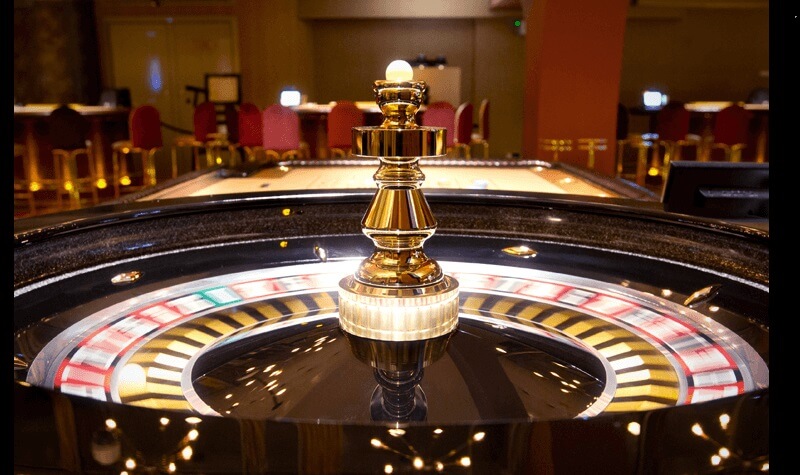When we think of gambling activities, the initial images that frequently come to mind are those of rotating roulette devices, poker tokens clinking on felt surfaces, and cubes flying across a betting surface. While numerous consider these activities as simple pastimes fueled by luck, a deeper exploration reveals a fascinating blend of tactics, skill, and social engagement that raises them well beyond basic luck. Regardless of whether you are a seasoned player or a curious newcomer, grasping the nuances of these games can greatly enhance your experience and understanding.
Casino games have developed over hundreds of years, with different cultures contributing to their rich histories and different forms. From the intricate strategies of 21 to the deception methods in card games, players engage in a battle of intellect as much as a risk on odds. This dynamic interplay between chance and expertise creates a thrilling atmosphere that draws millions to casinos worldwide. As we explore the world of table games, we will reveal the strategies that can tilt the odds in your advantage and the community elements that make these activities a favored choice for leisure and interaction.
The Strategy Behind Table Gaming

Casino games frequently involve a blend of ability and chance, which makes them intriguing for participants who enjoy a challenge. Each game has their unique set of guidelines and strategies that can influence the results. For example, in titles like blackjack, participants are required to use tactics like card counting and understanding the probabilities to make smart decisions. This skill set can significantly improve their winning potential, distinguishing experienced participants from beginners who may rely solely on chance.
Conversely, games such as the roulette may seem to be entirely based on chance, but tactical thinking can also come into the equation. Participants can select between various betting tactics, such as the Martingale strategy, in which they raise the wagers after a loss. This approach can establish a more controlled approach to the activity. Understanding the odds of specific wagers can also assist participants make better decisions on the table, showcasing that even games of luck, tactics can enhance the experience.
Additionally, poker stands out as a game that heavily emphasizes strategy. Unlike most gaming titles, the game of poker merges skill, mental acuity, and luck. Players must also concentrate on the hands they are dealt but also consider their opponents actions and betting patterns. Mastering principles like table position, pot odds, and reading bluffing is essential for winning. This complexity of strategy in the game of poker often creates to a more immersive encounter for players, where their decisions and skills significantly affect the game’s outcome.
Understanding Chance and Ratios
In the realm of gambling matches, likelihood and odds have a critical role in determining a gambler’s possible consequences. Every match has its own collection of rules that define how the probability of winning or losing is measured. For instance, in matches like blackjack, participants have a opportunity to affect their ratios through tactics, whereas in matches like the wheel, the outcomes are exclusively governed by luck. Grasping how these chances are measured can substantially affect how a gambler deals with the match.
Ratios are typically shown in two forms: fractional and decimal. Fractional odds show the proportion of the amount gained to the amount staked, whereas decimal odds show the overall payout for a winning wager, including the stake. For instance, if a game has ratios of 5 to 1, this means that for every one unit bet, a player could win five dollars if successful. Knowing how to read these odds enables players to evaluate their possible earnings and formulate more informed choices during gameplay.
Players should also be conscious of the casino advantage, which is the casino’s inherent advantage over the players. Each match has a distinct house edge, and comprehending this idea is crucial for managing one’s expectations and budget. Games with a reduced advantage, such as blackjack and chemin de fer, typically offer superior odds for players compared to activities like slots and lottery. By acknowledging the connection between probability, ratios, and the casino advantage, players can enhance their gaming engagement and strategize more effectively.
The Aspect of Casino Table Games
Casino games at casinos are often seen as a hub of social interaction, drawing players together in a collective experience that goes far beyond the mere act of playing games. The atmosphere at a blackjack table can be electric, with gamblers engaging not only with the game itself but also with one another. Laughter, excitement, and, occasionally, friendly banter create connections that improve the overall enjoyment of the gaming experience. This communal aspect can turn a solitary endeavor into a dynamic gathering, making casino games particularly appealing.
One of the intriguing elements of table gaming is the way it cultivates friendship among participants. Whether it’s teaming up to beat the dealer at a dice table or sharing stories between hands in a card game, the environment encourages communication. Players often share tips or tactics, creating a sense of community that boosts the fun. This social dynamic can make new gamblers feel included and less daunted by the competitive nature of gaming. As the game continues, friendships may form, leading to a sense of connection that keeps participants coming back to the table.
Moreover, the social aspect of gaming at tables extends outside just the participants. Casino staff play a vital role in encouraging interaction and maintaining the flow of the game. Their ability to engage gamblers with warm dialogue and their expertise in managing the table can create an inviting atmosphere. This connection between players and staff adds another layer of enjoyment, where gamblers feel bonded not only to each other but also to the staff. Such interactions are often what make the experience memorable, as participants leave with tales to tell and connections made, reinforcing the notion that table games are truly about something greater than luck. RR88